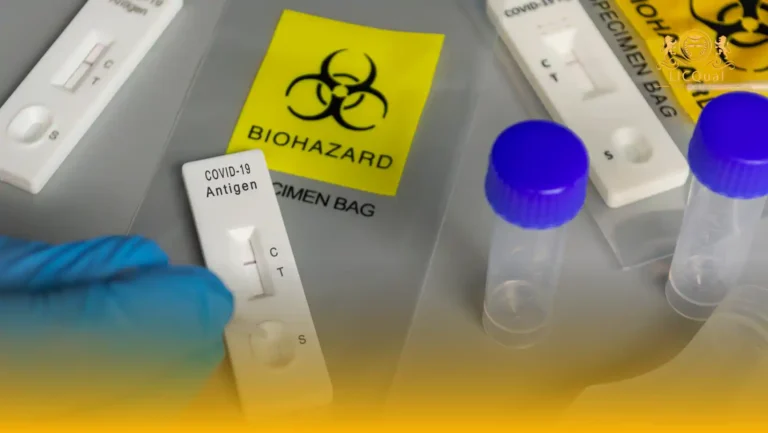The LICQual Level 3 Diploma in Pharmaceutical Informatics (Dip Pharmaceutical Informatics) is a comprehensive qualification designed for professionals seeking to advance their expertise within the pharmaceutical and healthcare sectors. This diploma provides learners with the knowledge and skills required to manage, analyse, and interpret pharmaceutical data effectively, supporting improved decision-making, regulatory compliance, and overall organisational efficiency.
This qualification is ideal for learners who wish to enhance their career prospects, broaden their understanding of pharmaceutical informatics, and achieve recognised Continuing Professional Development (CPD) milestones. By completing this diploma, learners gain practical and theoretical insights into pharmaceutical data management, information systems, and the application of informatics to clinical and operational processes.
Centres delivering the LICQual Level 3 Diploma in Pharmaceutical Informatics are required to uphold the highest standards of training. This includes ensuring all learners have access to competent and qualified staff, alongside appropriate teaching materials, technological tools, and resources to support effective learning and successful outcomes. By maintaining these standards, centres create an environment that fosters learner engagement, skill development, and professional growth.
Whether learners are aiming to progress within pharmaceutical organisations, contribute to healthcare data management, or pursue specialised roles in pharmaceutical informatics, this diploma offers a structured pathway to achieve professional recognition, enhance knowledge, and develop practical skills that are in high demand across the industry.
Course Overview
Qualification Title
LICQual Level 3 Diploma in Pharmaceutical Informatics (Dip Pharmaceutical Informatics)
Total Units
6
Total Credits
60
GLH
240
Qualification #
LICQ2201164
Qualification Specification
To enroll in the LICQual Level 3 Diploma in Pharmaceutical Informatics (Dip Pharmaceutical Informatics), applicants must meet the following criteria:
|
Qualification# |
Unit Title |
Credits |
GLH |
|---|---|---|---|
|
LICQ2201164-1 |
Introduction to Pharmaceutical Informatics |
10 |
40 |
|
LICQ2201164-2 |
Pharmaceutical Data Management |
10 |
40 |
|
LICQ2201164-3 |
Clinical Information Systems |
10 |
40 |
|
LICQ2201164-4 |
Regulatory and Compliance Informatics |
10 |
40 |
|
LICQ2201164-5 |
Pharmaceutical Data Analysis and Reporting |
10 |
40 |
|
LICQ2201164-6 |
Applications of Pharmaceutical Informatics |
10 |
40 |
By the end of this course, learners will be able to:
Unit 1: Introduction to Pharmaceutical Informatics
By the end of this unit, learners will be able to:
- Explain the fundamental principles and scope of pharmaceutical informatics
- Describe the role of informatics in healthcare and pharmaceutical operations
- Identify key components of clinical and pharmaceutical information systems
- Demonstrate understanding of the impact of informatics on data integrity, patient safety, and operational efficiency
Unit 2: Pharmaceutical Data Management
By the end of this unit, learners will be able to:
- Apply best practices for the collection, storage, and retrieval of pharmaceutical data
- Evaluate data quality, accuracy, and validation processes
- Demonstrate understanding of data security, confidentiality, and compliance with international standards such as GxP and ISO
- Analyse procedures for managing large-scale pharmaceutical datasets effectively
Unit 3: Clinical Information Systems
By the end of this unit, learners will be able to:
- Analyse the design and functionality of clinical information systems, including EHR and LIS
- Assess usability, interoperability, and integration of healthcare IT systems
- Implement procedures for managing electronic health data safely
- Demonstrate understanding of challenges and solutions in maintaining reliable and accessible clinical information systems
Unit 4: Regulatory and Compliance Informatics
By the end of this unit, learners will be able to:
- Explain national and international regulatory frameworks, including FDA, EMA, MHRA, and GDPR
- Demonstrate understanding of compliance requirements in pharmaceutical data management
- Apply principles of audit, validation, and reporting in line with regulatory standards
- Analyse the impact of regulatory compliance on pharmaceutical operations and data integrity
Unit 5: Pharmaceutical Data Analysis and Reporting
By the end of this unit, learners will be able to:
- Interpret and analyse pharmaceutical datasets using statistical methods
- Produce accurate and meaningful reports and visualisations
- Apply analytical techniques to support evidence-based decision-making
- Use informatics tools to identify trends, patterns, and insights in pharmaceutical data
Unit 6: Applications of Pharmaceutical Informatics
By the end of this unit, learners will be able to:
- Apply informatics principles in drug development, clinical trials, and pharmacovigilance
- Demonstrate practical problem-solving using case studies and project work
- Assess the impact of informatics solutions on operational and clinical outcomes
- Integrate theoretical knowledge and practical skills to support professional practice in pharmaceutical informatics
The LICQual Level 3 Diploma in Pharmaceutical Informatics (Dip Pharmaceutical Informatics) is designed for learners who want to combine healthcare, pharmacy, and technology into a rewarding career. This internationally accredited qualification is ideal for healthcare professionals, graduates, and aspiring researchers who want to master pharmaceutical informatics, clinical data management, and healthcare technology. Whether you are starting your journey or upgrading your expertise, this diploma provides the skills, recognition, and confidence to succeed in the pharmaceutical and healthcare industries.
1. Healthcare Professionals Seeking Digital Expertise
- Doctors, nurses, and pharmacists aiming to specialize in healthcare informatics
- Professionals transitioning into pharmaceutical data management and clinical trials
- Healthcare staff seeking internationally accredited qualifications in informatics
- Those wanting to enhance patient safety through data‑driven decision making
- Individuals aiming to expand career opportunities in hospitals and research centers
2. Graduates in Life Sciences and Medicine
- Students with degrees in biology, chemistry, or medicine
- Fresh graduates seeking specialized training in pharmaceutical informatics
- Learners aiming to strengthen their CV with an accredited diploma
- Those interested in careers in drug development and healthcare technology
- Graduates preparing for advanced studies in healthcare informatics
3. Pharmaceutical Industry Professionals
- Employees working in drug manufacturing and development
- Clinical trial coordinators seeking formal informatics qualifications
- Professionals aiming to improve regulatory compliance knowledge
- Staff wanting to understand international drug approval processes
- Individuals preparing for leadership roles in pharma research and informatics
4. IT and Data Management Specialists in Healthcare
- Professionals working in healthcare technology and data systems
- Individuals interested in clinical data management and analysis
- Staff aiming to integrate informatics into pharmaceutical workflows
- IT specialists seeking accredited healthcare informatics training
- Learners preparing for roles in digital health transformation
5. International Students and Global Learners
- Learners seeking accredited diplomas recognized worldwide
- Students aiming to work in multinational pharmaceutical companies
- Professionals looking for flexible online learning options
- Those wanting to meet global healthcare and research standards
- Individuals preparing for careers across borders in pharmaceutical informatics
6. Career Changers Entering Healthcare Technology
- Professionals from other industries transitioning into healthcare informatics
- Individuals seeking a structured pathway into pharmaceutical data management
- Those wanting to gain practical, job‑ready skills quickly
- Learners aiming to boost employability with accredited qualifications
- Career changers motivated by opportunities in drug development informatics
7. Policy Makers and Regulatory Professionals
- Individuals working in healthcare policy and regulation
- Professionals needing deeper knowledge of pharmaceutical informatics ethics
- Staff involved in drug approval and compliance processes
- Those aiming to strengthen expertise in international standards
- Learners preparing for advisory or consultancy roles in healthcare technology
To deliver the LICQual Level 3 Diploma in Pharmaceutical Informatics effectively and ensure high-quality learner outcomes, centres must meet the following requirements:
- Qualified and Competent Staff: Centres must employ instructors with relevant qualifications, professional experience in pharmaceutical informatics, and expertise in delivering Level 3 training. Staff should be capable of supporting learners through theoretical and practical aspects of the course.
- Access to Appropriate Resources: Centres must provide learners with access to up-to-date teaching materials, pharmaceutical informatics software, clinical information systems, and other resources required to support learning and assessments.
- Learning Environment: Centres should maintain a safe, well-equipped, and conducive learning environment that facilitates interactive learning, practical exercises, and group discussions.
- Technological Infrastructure: Centres must ensure reliable access to computers, internet connectivity, and any specialised software or tools necessary for data management, analysis, and reporting.
- Compliance with Standards: Centres must operate in accordance with relevant regulatory and quality assurance standards to maintain the integrity, reliability, and recognition of the qualification.
- Support for CPD and Learner Progression: Centres should provide guidance for Continuing Professional Development (CPD) and support learners in applying knowledge and skills in professional contexts.
By meeting these requirements, centres can deliver the LICQual Level 3 Diploma in Pharmaceutical Informatics to the highest standard, ensuring learners gain practical skills, theoretical knowledge, and professional recognition.
Assessment and Verification
All units within this qualification are subject to internal assessment by the approved centre and external verification by LICQual. The qualification follows a criterion-referenced assessment approach, ensuring that learners meet all specified learning outcomes.
To achieve a ‘Pass’ in any unit, learners must provide valid, sufficient, and authentic evidence demonstrating their attainment of all learning outcomes and compliance with the prescribed assessment criteria. The Assessor is responsible for evaluating the evidence and determining whether the learner has successfully met the required standards.
Assessors must maintain a clear and comprehensive audit trail, documenting the basis for their assessment decisions to ensure transparency, consistency, and compliance with quality assurance requirements.







